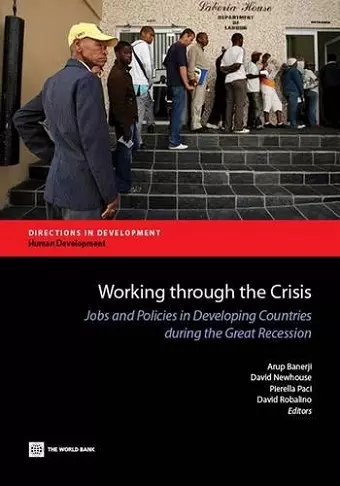Working Through the Crisis
Jobs and Policies in Developing Countries During the Great Recession
World Bank author Pierella Paci editor Arup Banerji editor David Locke Newhouse editor David Robalino editor
Format:Paperback
Publisher:World Bank Publications
Published:18th Dec '13
Currently unavailable, and unfortunately no date known when it will be back

The end of the MFA was followed by rising apparel exports, falling prices, and a reallocation of production and employment between countries. There were also significant changes within countries. The first main finding of this report is that export and employment patterns after the MFA/ATC did not necessarily match predictions. While many predicted that production would shift to low-wage countries, this book shows that only 13% of variation in export changes post-MFA can be explained by the differences in wage levels. Second, changes in exports are usually, but not always, good indicators of what happens to wages and employment within countries. This is especially important for policy because it shows that simply using exports as a metric of 'success' in terms of helping the poor is not sufficient. Third, the Book identifies the specific ways that changes in the global apparel market affected earnings. The Book shows that wage premiums change in predictable ways: rising (in most cases) in countries that were proactive in adapting to the MFA phase-out and expanded their market shares, and falling in countries that failed to respond in a timely fashion to the changing environment.
The book shows that promoting 'upgrading' (defined as shifting to higher-value goods, shifting up the value chain, or 'modernizing' production techniques) seems to be necessary for sustainable competitiveness in the apparel sector but does not necessarily help the poor. Policies that support upgrading need to be complemented with targeted workforce development to make sure that the most vulnerable workers are not left behind. Having a vision for the evolution of the apparel sector that incorporates developing worker skills seems crucial. Otherwise, less-skilled workers could miss out on opportunities to gain valuable work experience in manufacturing.
ISBN: 9780821389676
Dimensions: unknown
Weight: unknown
288 pages